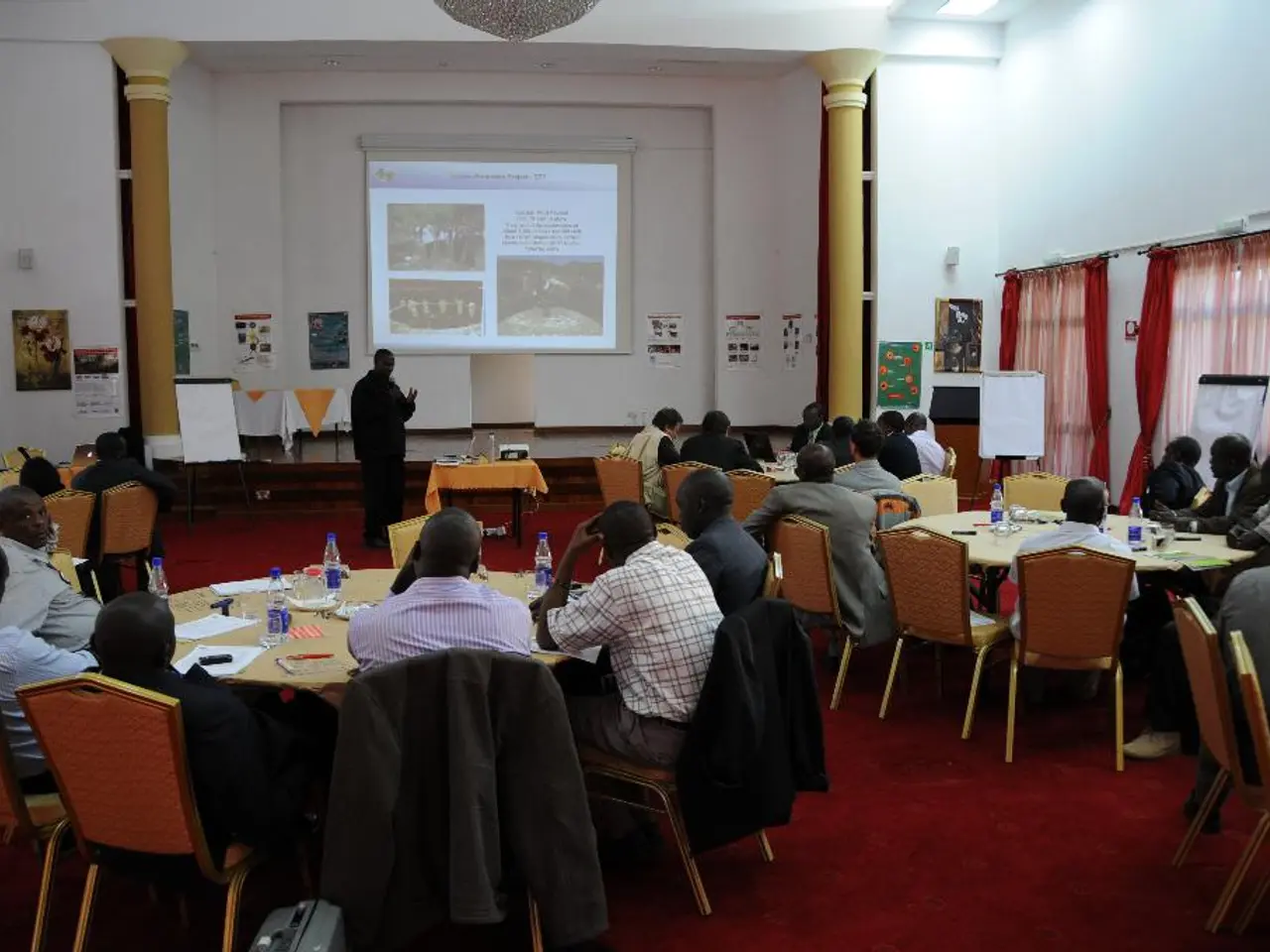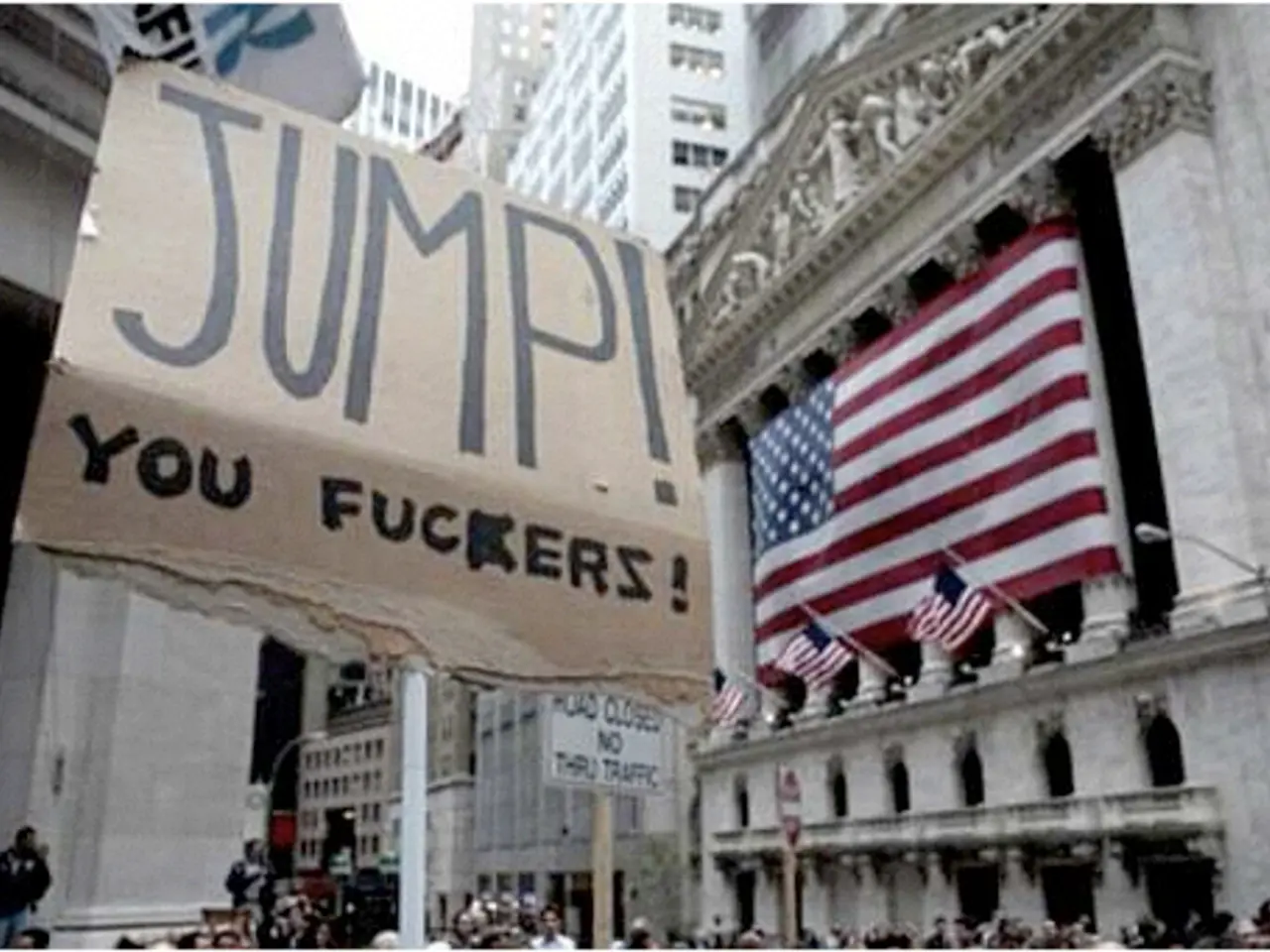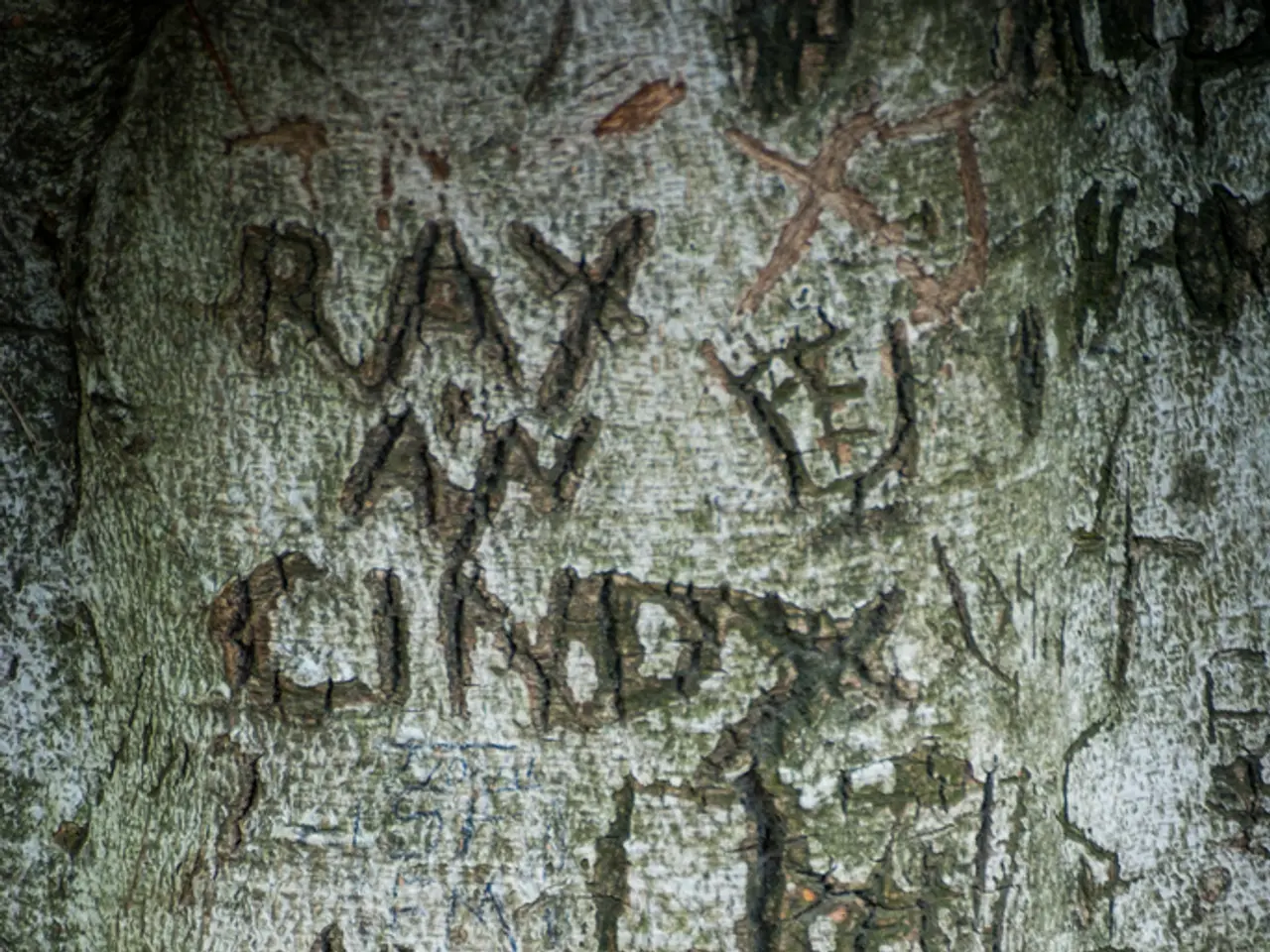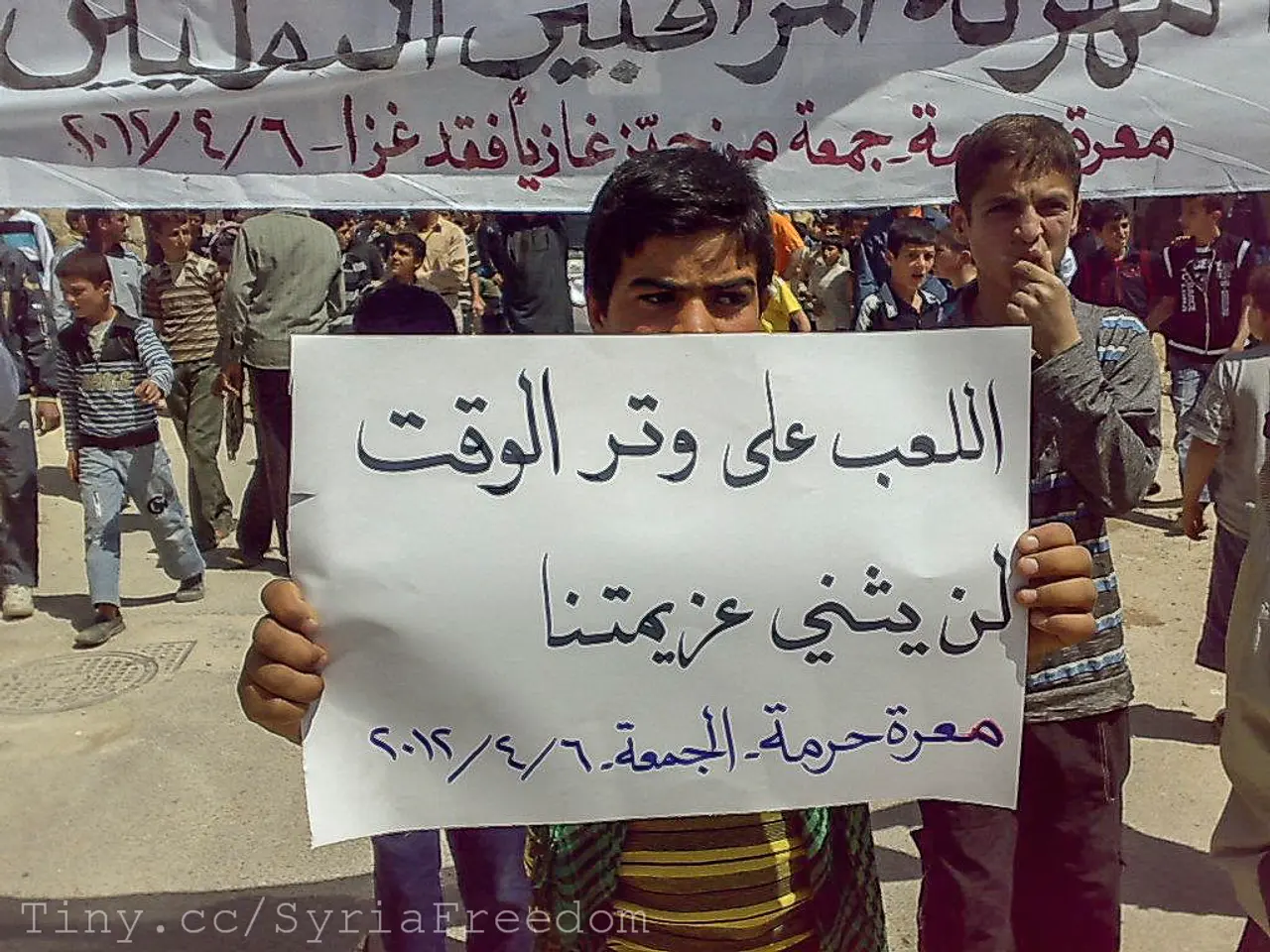Mohamed Ali stands firm in his refusal to collaborate with the Alternative for Germany (AfD) party.
In a recent interview with the German newspaper, Rheinische Post, Amira Mohamed Ali, co-chair of the Bündnis Sahra Wagenknecht (BSW), reiterated the alliance's stance on refusing cooperation with the Alternative für Deutschland (AfD) in Berlin.
The BSW, a political alliance, has been at the centre of debates regarding potential cooperation with the AfD, particularly in eastern German states where their combined seats could form a majority. However, in Berlin, a city known for its diversity and liberal political dynamics, the BSW has chosen to distance itself from the AfD.
The AfD, a political party, is widely regarded as a far-right party with tough anti-immigration policies that are largely rejected by mainstream parties and many voters in Berlin. The Christian Democratic Union (CDU) and other mainstream parties have established a "firewall" against the AfD at federal and state levels, refusing to cooperate with them.
Despite this, the BSW has offered the CDU the option of coalition cooperation if necessary, but only on the condition that the AfD is excluded. CDU leaders have expressed strong opposition to cooperation with both the AfD and the BSW, citing fundamental ideological incompatibilities, especially regarding issues like anti-Americanism and leftist socialism.
The BSW maintains that the AfD and the BSW are ideologically too far apart to collaborate. Amira Mohamed Ali, in her interview with the Rheinische Post, confirmed that the BSW's stance on the AfD has not changed.
The rejection of cooperation with the AfD by the BSW is significant in German politics, as it reflects the complex political landscape the country faces with the rise of both the BSW and the AfD. The BSW's decision to avoid cooperation with the AfD in Berlin is a pragmatic one, aimed at maintaining political viability and avoiding association with the AfD’s far-right stance, while respecting Berlin's different political climate and mainstream opposition to the AfD.
[1] "Berlin Says No to AfD: Bündnis 90/Die Grünen and SPD Reject Coalition Talks," Deutsche Welle, 14 February 2019, https://www.dw.com/en/berlin-says-no-to-afd-bundnis-90die-gruenen-and-spd-reject-coalition-talks/a-47458611
[2] "CDU Leader Lashes Out at Bündnis 90/Die Grünen Over AfD," Deutsche Welle, 26 February 2019, https://www.dw.com/en/cdu-leader-lashes-out-at-bundnis-90die-gruenen-over-afd/a-47566641
[3] "BSW and AfD Talks in Thuringia Described as 'Constructive and Open'," Deutsche Welle, 1 March 2019, https://www.dw.com/en/bsw-and-afd-talks-in-thuringia-described-as-constructive-and-open/a-47580419
[4] "BSW and AfD in Thuringia: A Tentative Alliance," Deutsche Welle, 7 March 2019, https://www.dw.com/en/bsw-and-afd-in-thuringia-a-tentative-alliance/a-47613871
- The Bündnis Sahra Wagenknecht (BSW) and mainstream policy-and-legislation parties, such as the Christian Democratic Union (CDU), have maintained a "firewall" against the Alternative für Deutschland (AfD), a far-right political party with strong anti-immigration policies.
- General news outlets have reported on debates regarding potential coalition cooperation between the BSW and the CDU, but only if the AfD is excluded, reflecting the complex politics in Germany with the rise of both parties.






